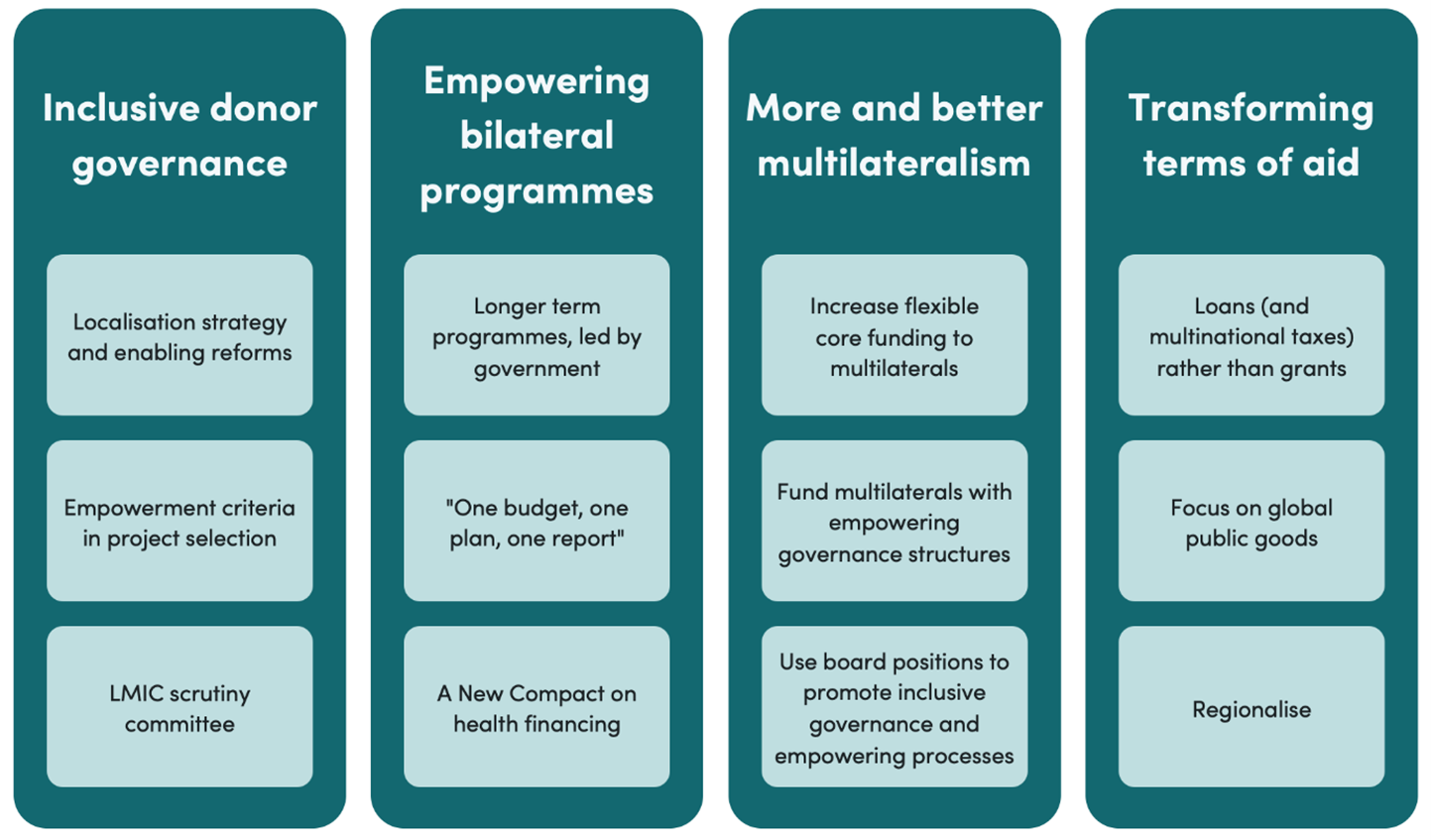This is a joint post with Nancy Birdsall.We often hear criticism of the
COD Aid approach from people who question whether a high-level incentive would really alter the behavior of recipient countries. Paolo de Renzio raised this issue in a
recent blog, saying that COD Aid is unlikely to work because recipient “[g]overnments have not only insufficient capacity, but also limited political interest in using available resources to maximize development impact.” The question this raises, though, is not whether COD Aid is worth trying. Rather it is questioning whether
any foreign assistance can make a difference. The appropriate counterfactuals for COD Aid are existing aid modalities which rely on extensive engagement between funders and recipients on inputs, planning and implementation. The assumption of current aid modalities is that imposing the funder’s views of planning, institutional structures, training, and technical assistance from abroad can achieve progress even when a recipient country is less than enthusiastic about a program. That is the counterfactual against which to consider COD Aid.The key thing missing from these critiques is that they implicitly treat aid to low-income countries as flowing from a beneficent donor to a problematic recipient. However, as Paolo and others are well aware, the behavior of funders also contributes to failures in achieving development goals. Funders don’t necessarily know better than countries how to achieve results, yet the structure of technical assistance tied to aid projects assumes this to be the case. Also, funders introduce volatility in funding, information requirements, and policy attention that often detracts from domestic governance in these countries.Nancy and I are not arguing that COD Aid is worth trying because it creates a better incentive for recipient countries. We are arguing that it is worth trying because it creates a better relationship between funders and recipients. It would focus attention on the desired outcome, on getting precise and reliable information about that outcome, and on directing funds in proportion to progress. It would shift variability in payments away from political and bureaucratic processes in the funding institutions and toward factors related to achieving progress that are more in the purview of the developing country. It changes the structure of information reporting and payment triggers for both funders and recipients in a way that has not been fully tested anywhere.In the end, if COD Aid to a country with no interest in achieving progress is like pushing on a string, at least it brings no further burden on the developing country and doesn’t waste developed country money. By contrast, most current aid modalities disburse money to a government that isn’t making progress, creating vested interests in maintaining the flow of funds even when the outcomes are not achieved.
CGD blog posts reflect the views of the authors, drawing on prior research and experience in their areas of expertise.
CGD is a nonpartisan, independent organization and does not take institutional positions.





